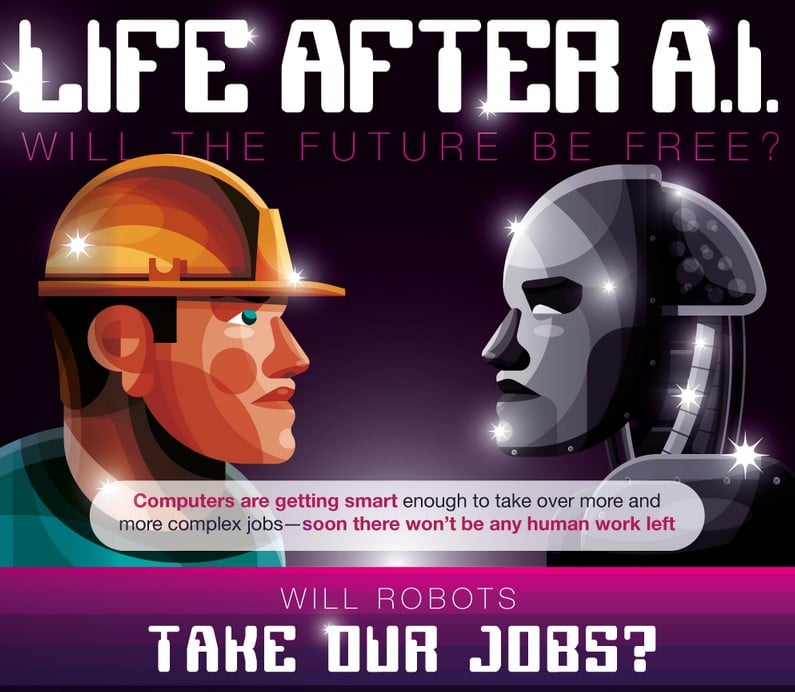When industrial robots were first introduced, many people feared they would take our jobs. In fact, one robot can do the work of more than 5 people. By 2025, the number of robots in the United States could quadruple, taking over even more of the labor that was once reserved for humans.
Q1 hedge fund letters, conference, scoops etc, Also read Lear Capital
Industrial robots aren’t the only technology taking over human jobs. Just look at Google Vs AT&T below for one example. With the recent growth of artificial intelligence, jobs beyond manufacturing may be at risk.
The Associated Press uses A.I. to write articles on corporate earning and IBM’s Watson helps treat cancer patients. A.I. powers the autopilot in driverless cars. In fact, by 2033, nearly half of the jobs in the United States will be at risk of automation.
When robots began to take over human labor, the workforce shifted to cognitive labor and service industries. Now artificial intelligence is gearing up to take over cognitive labor - what will humans do when the work is gone?
Americans, at least, aren’t likely to give up work all together. Today, Americans are working longer hours, and find value in their work beyond a source of income. People go to work to benefit society, socialize and help others, and many just find their jobs interesting.
In 1930, economist John Maynard Keynes predicted that technology would eventually a 15 hour work week. Just as the Industrial Revolution eventually led to reduced work hours, the artificial intelligence revolution may bring about Keynes’s prediction.
So what might the world look like with so little work? We’re beginning to hints of a possible future with the growth of the gig-economy, were workers compete for individual tasks. Through services like Uber and TaskRabbit, workers can set their own schedule, and decide when their work is done.
Manufacturing robots and 3D printers will make goods inexpensive and easily customizable, possibly even free. But the automation of manufacturing may also increase the value of human artisanship and handmade goods.
Without work, people will have to find other ways to connect with others, find success, and benefits society. More free time may lead many to do volunteer work. Others may look to technology and gaming, to find a way to feel accomplished and connect with others. As virtual and augmented reality technologies become more advanced, the ways we interact with others will continue to change.
Check out this infographic to find out more about a future without work.







